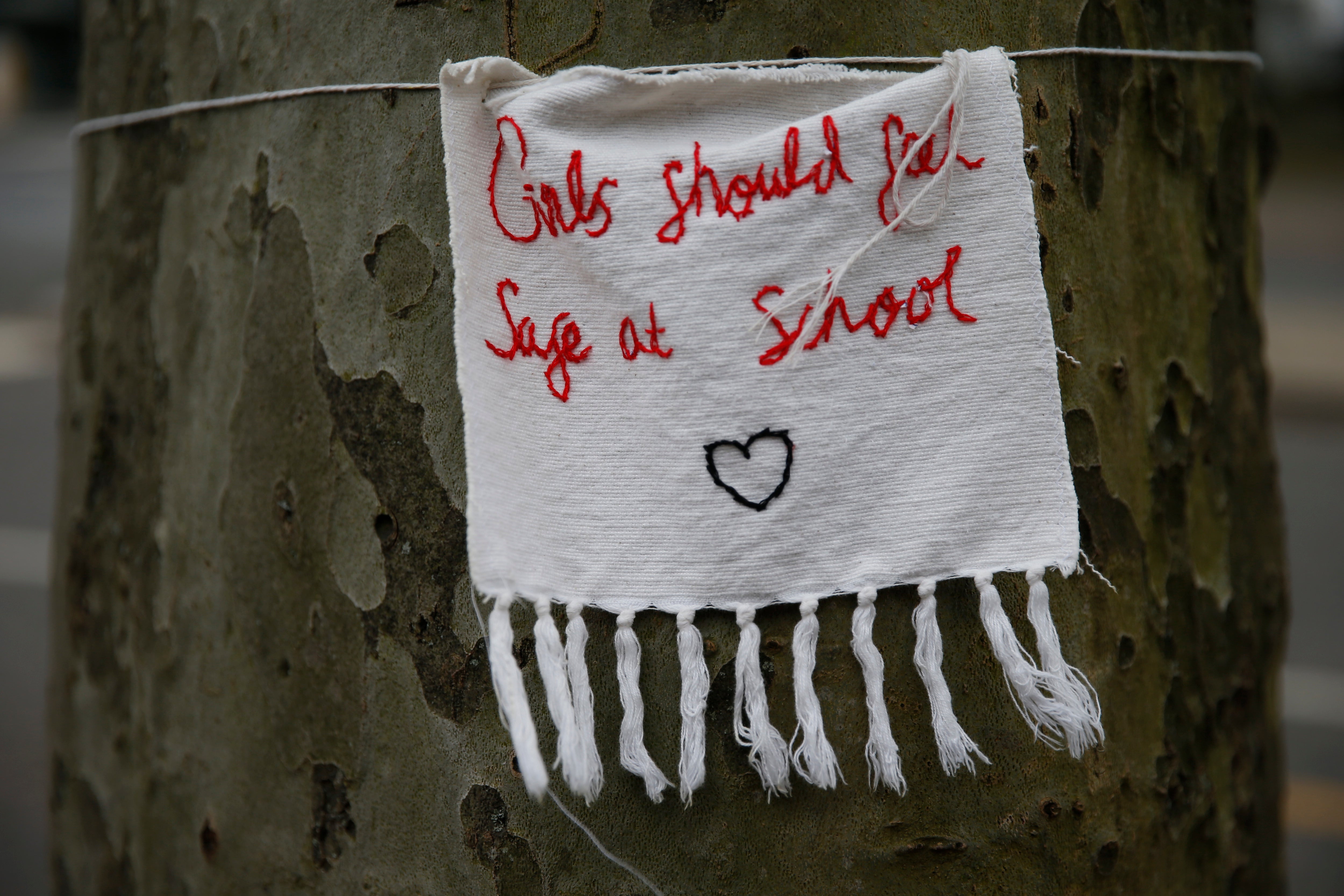Girls of colour more likely to be ‘sexually harassed at school’
‘I’m fed up of the culture and dismissal of our experiences’ says 16-year-old

Your support helps us to tell the story
From reproductive rights to climate change to Big Tech, The Independent is on the ground when the story is developing. Whether it's investigating the financials of Elon Musk's pro-Trump PAC or producing our latest documentary, 'The A Word', which shines a light on the American women fighting for reproductive rights, we know how important it is to parse out the facts from the messaging.
At such a critical moment in US history, we need reporters on the ground. Your donation allows us to keep sending journalists to speak to both sides of the story.
The Independent is trusted by Americans across the entire political spectrum. And unlike many other quality news outlets, we choose not to lock Americans out of our reporting and analysis with paywalls. We believe quality journalism should be available to everyone, paid for by those who can afford it.
Your support makes all the difference.Girls of colour are more likely to be subjected to sexual harassment at school, troubling new research has found.
A study by Girlguiding, the largest girl-only youth organisation in the UK, discovered two thirds of all girls have suffered sexual harassment at school from fellow pupils.
Researchers found this ranged from being pinned down, having a skirt pulled down, a bra strap tugged to being bombarded with sexual taunts among other forms of abuse.
Girls of colour were found to be more likely to be sexually harassed both in school and in public spaces away from the school gates than their white classmates. While around four in ten girls of colour had suffered stalking in school, only a quarter of white girls had experienced this.
Lesbian, gay, bisexual and queer girls were also disproportionately more likely to suffer sexual harassment.
Henrietta, a 16-year-old member of Girlguiding, said: “School should be a safe space where I and other girls can thrive.
“Yet I think I speak for all girls when I say that I’m fed up - of the culture and dismissal of our experiences, and of the relentless barrage of abuse and harassment we endure both at school and in public.
“Not a day goes by when I don’t hear boys making sexual jokes or hear of friend’s experiences of sexual harassment. Attitudes and culture must change if we are to get to the root of the problem and stop damaging girls’ wellbeing, confidence and self-esteem.”
Researchers, who surveyed over 420 girls and young women aged between 13 and 18, discovered eight in ten feel unsafe when they venture outdoors by themselves.
Half avoid going out when it is dark, with some 46 per cent of white girls saying this, compared to 68 per cent of girls of colour and 63 per cent of lesbian, gay, bisexual and queer girls.
Andrea Simon, director of End Violence Against Women Coalition, told The Independent: "It's telling that the everyday experience of young black women and girls is one of racialised sexual harassment.
"We can't separate race from sexual harassment because it is based on their whole identities. Harassment and abuse often uses racist stereotypes and insults."
Angela Salt, the chief executive of Girlguiding, which bills itself as the UK’s leading charity for girls and young women, said: “The scale of sexual harassment that girls and young women experience as shown in Girlguiding’s research is appalling.
“This needs to change. Girls and young women have a right to feel and be safe at all times of the day and night. Girlguiding is calling for the culture of harassment to be recognised and tackled wherever it occurs. The burden mustn’t fall on girls and young women to have to change this on their own.”
One in ten of all girls and young women polled thinks sexual harassment detrimentally impacts their ability to learn at school - infringing on how much they can focus or contribute in lessons.
It comes just after Ofsted released a major damning report which found boys are distributing explicit images of girls with each other via social media like a “collection game”.
Last week’s report by the school watchdog, which spoke to over 900 children and young people, discovered sexual harassment is “so commonplace” for some children that they “see no point” in reporting it to school staff.
The Department for Education (DfE) has announced more support for schools and colleges to tackle sexual abuse in light of Ofsted’s findings.
Ofsted, which visited 32 state and private schools and colleges, launched the review in the wake of Everyone’s Invited, a campaign which saw young people share thousands of accounts of sexual harassment and assault.
A representative of the Department for Education has been contacted for comment.


Join our commenting forum
Join thought-provoking conversations, follow other Independent readers and see their replies
Comments